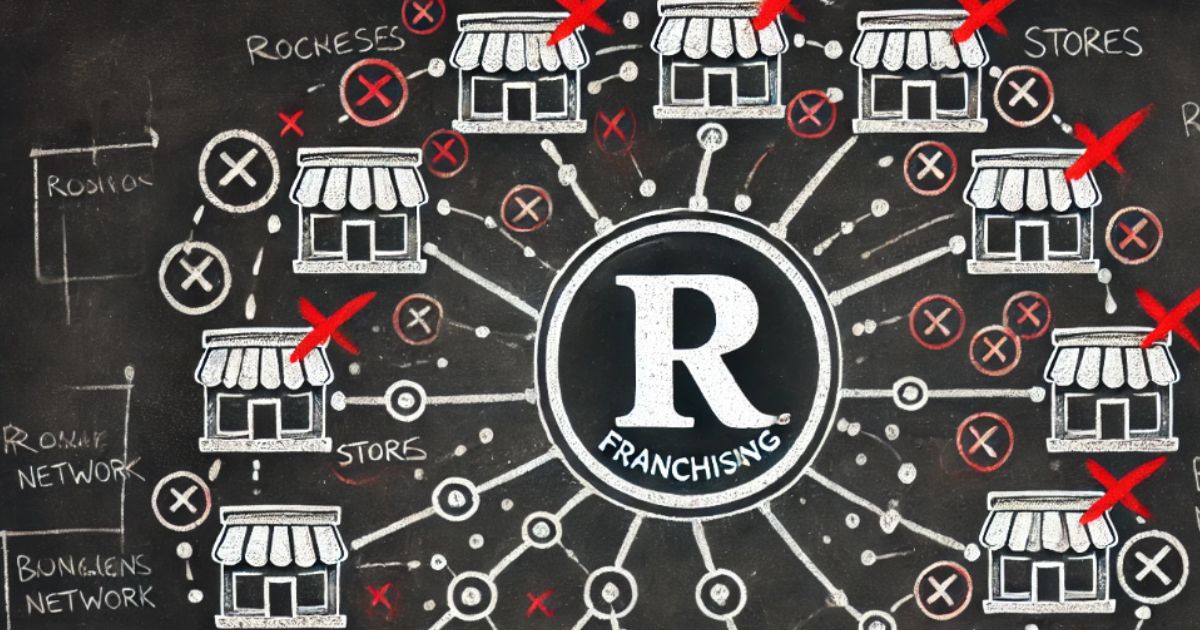Drafting and executing a franchise agreement involves numerous complexities that require a lawyer’s careful attention. This article explores the regulatory requirements, such as the written form and pre-contractual obligations, and analyses the tools available to protect key elements such as know-how, trademarks, and intellectual property rights. It also examines the issue of economic dependence abuse and provides practical guidance to prevent disputes, with particular focus on mandatory mediation introduced by the Cartabia Reform.
How to draft a solid and legally compliant franchise agreement
Drafting a franchise agreement requires compliance with specific legal requirements, which are essential for ensuring the validity of the contract and protecting the parties involved. Italian Law No. 129/2004, for instance, mandates that the agreement be in writing, under penalty of nullity, and sets a minimum duration of three years for fixed-term contracts (see Art. 3). This provision ensures that the franchisee has sufficient time to recoup their initial investment.
An effective franchise agreement must include key elements such as:
- The method for calculating royalties
- The amount of initial investments required
- Any territorial exclusivity clauses
- A detailed description of the transferred know-how.
Omitting these elements may compromise the validity of the contract and lead to legal disputes, potentially causing significant harm to the franchisor (for further details, see The franchise agreement, step by step, and regarding territorial exclusivity, Proper territorial distribution of franchise outlets).
A crucial element of transparency is the Pre-Contractual Information Document. While this terminology comes from international practice and is not formally recognised in Italian law, the disclosure obligations imposed by Law No. 129/2004 are substantially equivalent (see Art. 4). Specifically, the franchisor must provide the franchisee with the following at least 30 days before signing the contract:
- A complete copy of the franchise agreement
- Financial information demonstrating the franchisor’s economic reliability, such as balance sheets or other relevant data
- Details of the required initial investments and any obligations imposed on the franchisee
- Conditions of territorial exclusivity, if applicable.
These disclosure obligations, similar to the Franchise Disclosure Document (FDD) required in other jurisdictions, are essential for ensuring transparency and enabling franchisees to make informed decisions.
But how can franchisors protect their most valuable assets, such as know-how and intellectual property rights?
How to protect the franchisor’s know-how and intellectual property
In any franchise network, know-how is the foundation of success. This intangible asset—comprising expertise, methodologies, and operational tools—forms the “secret formula” that makes a franchise format both unique and replicable (see How to create a unique yet replicable format: franchising). Alongside this, management software plays a crucial role in standardising franchisee operations, while the trademark serves as the common identity under which the entire network operates (see How much does it cost to register a trademark?).
Management software, increasingly central to daily franchise operations, provides franchisees with essential resources such as operational manuals, order management systems, reporting tools, and continuous training platforms. This tool, vital for ensuring operational consistency and compliance with brand standards, must be carefully protected as an integral part of the franchisor’s know-how (see Process digitalisation: the new mandate for building a productive and secure ecosystem). It is therefore essential to include confidentiality and non-compete clauses in franchise agreements, safeguarding not only the software and know-how but also the proprietary information embedded within the software itself, both during and after the agreement’s termination. However, any non-compete provisions must comply with public policy restrictions designed to preserve fair competition.
The trademark also plays a central role in franchising, as established by industry regulations (Art. 1, Law No. 129/2004). It defines the franchisor’s identity and enables franchisees to operate under a unified brand, ensuring market recognition, trust, and consistency. Protecting the trademark should be a top priority: registering it with the relevant authorities—along with patents and designs—shields the franchisor from unauthorised use by franchisees or third parties, thereby safeguarding the business.
Regular audits are also essential to ensure compliance with operational standards, the correct use of software, and the protection of the trademark, helping to maintain brand consistency across the franchise network.
Protecting know-how, trademarks, and technological tools such as management software is not just a legal necessity—it is a key strategy for ensuring the success and competitiveness of the franchise.
Franchising and the risk of economic dependence abuse
While franchising is a successful business model for many companies, it also carries the risk of economic imbalances that may lead to situations of economic dependence between the franchisor and the franchisee. One of the main concerns is the possibility of the franchisor imposing unplanned investments or exercising discretionary control over supplies, as highlighted in a notable case (see The Benetton Case: practical implications for franchise agreements). Such practices may constitute an abuse of economic dependence, violating Article 9 of Law No. 192/1998, which regulates business-to-business contracts to prevent excessive imbalances in commercial relationships. However, not all commercial restrictions in franchising are automatically compensable (see In franchising, commercial limitations do not necessarily constitute compensable abuse against the franchisee).
To mitigate these risks, franchisors must ensure that financial requirements are proportionate, justified, and supported by concrete operational assistance. Tools such as ongoing training, realistic development plans, and transparent communication not only strengthen franchisee confidence but also enhance the overall stability of the network.
From the franchisee’s perspective, conducting a thorough financial assessment before signing the agreement is crucial. A careful evaluation of costs, obligations, and potential risks of economic dependence can help franchisees avoid unsustainable financial commitments (see Franchising: how much capital is needed for the start-up phase?).
Collaboration and transparency between parties are therefore essential to building a balanced business relationship and preventing conflicts. But what should be done when the relationship deteriorates, or disputes arise?
How to handle franchise disputes
Even with a well-structured contract, operational, financial, or compliance issues may arise during the franchise relationship. To minimise the risk of litigation, it is essential to note that, since 30 June 2023, franchise-related disputes are subject to mandatory mediation. This requirement, introduced by the Cartabia Reform, makes mediation a prerequisite before initiating legal proceedings.
Mediation, in addition to being a legal obligation, is an effective tool for resolving conflicts more quickly and cost-effectively than traditional litigation. When disputes arise over breaches of contractual obligations, both parties must act promptly and document their claims thoroughly.
- The franchisor should address critical issues such as inadequate training or lack of technical support.
- The franchisee must gather evidence of any contractual breaches to seek compensation or renegotiate terms if necessary.
A proactive approach to managing contractual relationships and continuous monitoring of mutual obligations help preserve business relationships and contribute to the overall success of the franchise network.
© Canella Camaiora S.t.A. S.r.l. - All rights reserved.
Publication date: 28 November 2024
Last update: 7 May 2025
Textual reproduction of the article is permitted, even for commercial purposes, within the limit of 15% of its entirety, provided that the source is clearly indicated. In the case of online reproduction, a link to the original article must be included. Unauthorised reproduction or paraphrasing without indication of source will be prosecuted.

Arlo Canella
Managing Partner of the Canella Camaiora Law Firm, member of the Milan Bar Association, passionate about Branding, Communication and Design.
